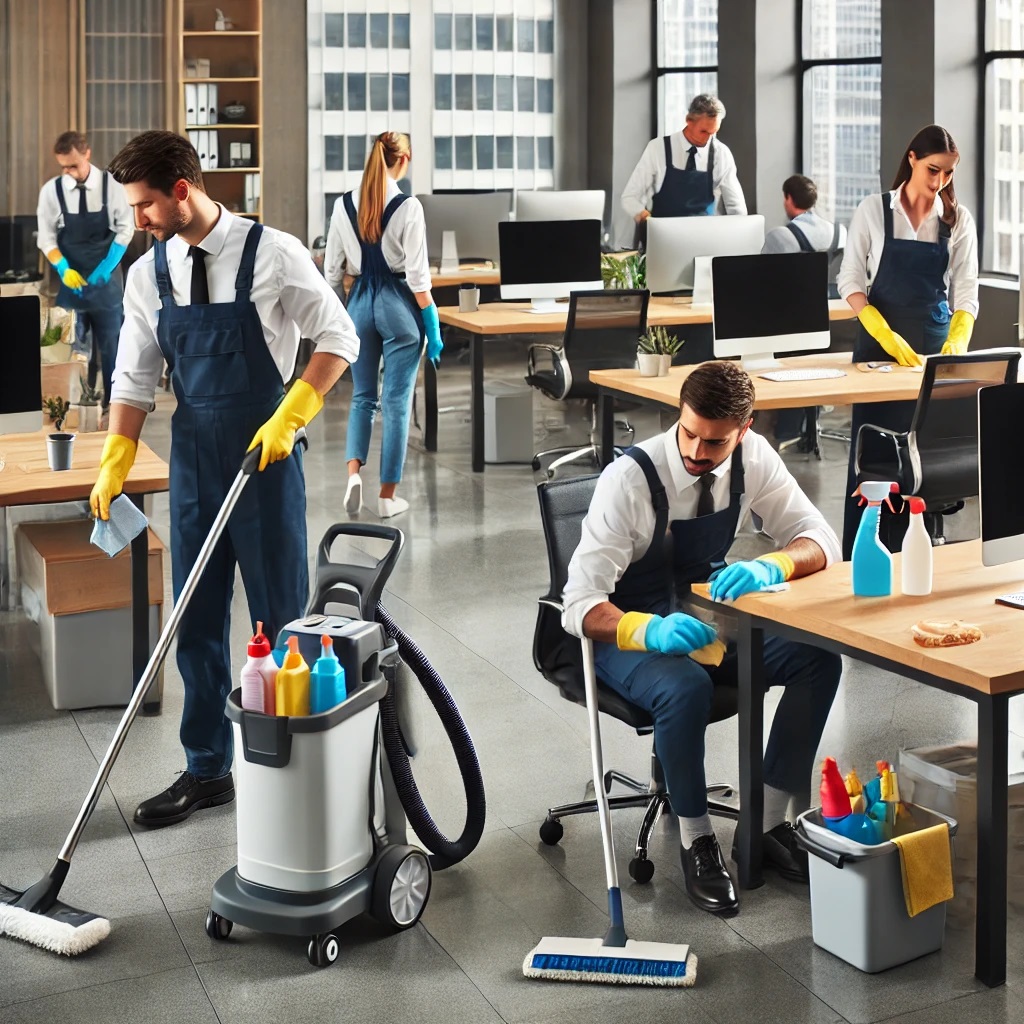
Introduction
In today’s data-driven world, maintaining the confidentiality of sensitive information is a top priority for businesses. When it comes to commercial cleaning services, ensuring that cleaning staff do not inadvertently compromise sensitive data is crucial. This article explores the methods and practices commercial cleaning services employ to handle sensitive information securely and efficiently.
Understanding Sensitive Information
Sensitive information encompasses a broad range of data, including personal identification details, financial records, client information, and proprietary business data. For commercial cleaning services, understanding what constitutes sensitive information is the first step in ensuring its protection.
The Importance of Handling Sensitive Information
Proper handling of sensitive information is not just about compliance with laws and regulations; it’s about maintaining trust and integrity. Businesses rely on commercial cleaning services to maintain a clean environment without compromising their sensitive data.
Employee Training and Background Checks
Commercial cleaning services must ensure that their employees are trustworthy and reliable. This involves thorough background checks and comprehensive training programs focused on confidentiality and data protection.
Confidentiality Agreements
One of the foundational steps in safeguarding sensitive information is the implementation of confidentiality agreements. These legal documents bind employees to maintain secrecy about any information they come across during their work.
Access Control Measures
Limiting access to areas where sensitive information is stored is a critical strategy. Cleaning staff should have access only to the areas they need to clean, and sensitive areas should be off-limits without supervision.
Secure Disposal of Documents
Proper disposal of documents containing sensitive information is essential. Shredding and using secure bins for disposal are common practices to ensure that data cannot be reconstructed or accessed by unauthorized personnel. Read this blog.
Data Protection Policies
Having clear data protection policies in place helps commercial cleaning services and their clients understand their roles and responsibilities. These policies outline the procedures for handling, storing, and disposing of sensitive information.
Monitoring and Supervision
Regular monitoring and supervision of cleaning staff can help in early detection of any potential security breaches. This includes the use of surveillance systems and periodic audits of cleaning processes.
Incident Response Plans
In the event of a data breach or security incident, having a well-defined incident response plan is crucial. This plan should detail the steps to be taken to mitigate the breach, notify affected parties, and prevent future occurrences.
Partnering with Reliable Cleaning Services
Businesses should partner with reputable cleaning services that have a proven track record of handling sensitive information securely. This involves due diligence during the selection process and ongoing evaluations of the cleaning service’s practices.
Legal and Regulatory Compliance
Compliance with legal and regulatory standards is mandatory. Cleaning services must be aware of and adhere to laws such as GDPR, HIPAA, and other relevant data protection regulations.
Using Technology for Security
Technology plays a significant role in safeguarding sensitive information. This includes the use of secure communication channels, electronic access controls, and software solutions for monitoring and compliance.
Communication Protocols
Clear communication protocols between the business and the cleaning service ensure that sensitive areas and data are appropriately protected. This includes pre-arranged schedules and defined points of contact.
Role of Management in Ensuring Security
Management’s role is crucial in ensuring that security measures are upheld. This includes setting policies, conducting regular reviews, and fostering a culture of security awareness within the organization.
Best Practices for Businesses
Businesses can implement several best practices to complement the efforts of their cleaning service. This includes securing workstations, regularly updating passwords, and educating employees about data security.
Common Challenges and Solutions
Despite best efforts, challenges such as human error, insider threats, and evolving security threats can arise. Identifying these challenges and implementing solutions like continuous training and advanced security measures is vital.
Case Studies of Security Breaches
Analyzing case studies of past security breaches can provide valuable insights into what went wrong and how similar incidents can be prevented in the future. Learning from others’ mistakes is a proactive approach to security.
The Future of Security in Commercial Cleaning
As technology and threats evolve, so must the security measures in commercial cleaning services. Future trends may include more advanced monitoring systems, AI-driven security protocols, and increased integration of cybersecurity measures.
FAQ
How do commercial cleaning services ensure their employees are trustworthy?
Commercial cleaning services conduct thorough background checks and provide extensive training focused on confidentiality and security practices.
What are confidentiality agreements and why are they important?
Confidentiality agreements are legal documents that bind employees to keep any sensitive information they come across during their work confidential. They are crucial for ensuring data protection.
What measures are taken to secure the disposal of sensitive documents?
Sensitive documents are securely disposed of by shredding and using locked bins that prevent unauthorized access to discarded information.
How can businesses ensure their cleaning service is handling sensitive information correctly?
Businesses should perform due diligence when selecting a cleaning service, including verifying their security protocols, training programs, and track record in handling sensitive information.
What role does technology play in protecting sensitive information during cleaning? T
echnology aids in securing sensitive information through electronic access controls, surveillance systems, and secure communication channels.
What should be included in an incident response plan for data breaches?
An incident response plan should detail immediate actions to mitigate the breach, steps for notifying affected parties, and measures to prevent future incidents.
Conclusion
Commercial cleaning services play a vital role in maintaining a secure environment for businesses. By understanding and implementing stringent security measures, these services ensure that sensitive information remains protected. From employee training to advanced technological solutions, a comprehensive approach to data security is essential. Businesses and cleaning services must work together to uphold these standards and protect sensitive information effectively. To know more details, read this blog: https://www.quickdeliverytoronto.ca/2024/07/how-do-commercial-cleaning-services.html
